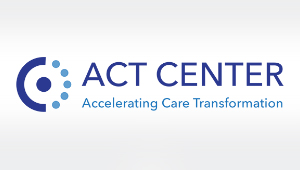Toolkit offers guidance for people with persistent pain

The new comprehensive resource was written from the perspective of patients experiencing ongoing pain
The Center for Accelerating Care Transformation (ACT Center), part of Kaiser Permanente Washington Health Research Institute (KPWHRI), recently released a new resource for people living with persistent pain. Called the Toolkit for Managing Persistent Pain, it provides practical tips to help anyone living with ongoing pain, no matter what treatment methods they use.
More than 1 in 5 adults in America — 50 million people — live with persistent pain. Persistent pain is the leading cause of long-term disability in the United States.
The freely available toolkit is designed to support people wherever they are in their pain management journey: from learning about ongoing pain and management strategies, to preparing for a medical appointment and then navigating the health care system. It describes how persistent pain impacts body and mind, explains the roles of patients and care teams in managing pain, and provides information on self-management resources. It also equips people to communicate confidently about their “pain story” and present condition, stigma in the health care system, treatment options, and goals for pain management and wellbeing.
The Integrated Pain Management (IPM) project team — made up of KPWHRI researchers and 4 patient partners who are Kaiser Permanente Washington members living with ongoing pain — co-designed the toolkit. The toolkit is written from the perspective of the patient partners. The IPM project team works with patients, care teams, and leaders at Kaiser Permanente Washington to provide whole-person care for people with pain and provide safe alternatives to opioids.

The Integrated Pain Management Team, which includes KPWHRI researchers and 4 patient partners, celebrates 2.5 years of collaboration and the launch of the Toolkit for Managing Persistent Pain.
“We are experts on living with ongoing pain, and this toolkit is guided by our personal experiences. Our goal is to help other people living with pain,” write the patient partners in the toolkit. “Working with the ACT Center, we have also designed other resources for people like us — including patient education materials and tools for health care teams caring for patients with pain. The ACT Center works with health care teams to put these resources to use and improve care in a patient-centered way.”
The toolkit provides information like tips, stories and scenarios, and graphics to make the content reader friendly. Importantly, readers will find tools for self-management like journal prompts and trackers and tools to prepare for medical appointments. These include talking points, checklists, a list of key terms, and useful questions to ask. The toolkit closes with a list of books, webinars, support groups, and websites that all provide additional free resources for people living with persistent pain. Everything included in the toolkit is free for anyone to download and use.
The IPM team includes KPWHRI researchers Kelsey Stefanik-Guizlo, Sarah Brush, Jessica Mogk, and Paula Lozano.
“We drew together educational resources we made, personal experiences, and self-management skills to create an all-in-one resource for active self-managers of persistent pain,” said Brush, a research support specialist who helped develop the toolkit. “The IPM patient partners are intelligent, compassionate, and dedicated friends who created this toolkit to offer genuine support and care to others living with and managing pain. I hope many people can benefit from the expertise and love that went into making the Toolkit for Managing Persistent Pain.”
Brush wrote a blog post that gives a personal view into the experiences that went into creating the toolkit.
The toolkit is available in the ACT Center’s resource library.
By Marya Purrington
Researchers
Kelsey Stefanik-Guizlo, MPH
Collaborative Scientist
Jess Mogk, MPH
Collaborative Scientist
Paula Lozano, MD, MPH
Senior Investigator; Director, ACT Center
Visit the ACT Center

Moving research into action, together
KPWHRI’s Center for Accelerating Care Transformation improves health for people and communities by streamlining the path from research to practice.
Healthy Findings Blog

Building trust in primary care
Michael Parchman, MD, MPH, explores how relationship-building, “sense-making conversations,” and patience can build trust and promote high-value care.
Partnering with patients

5 lessons from co-designing with patient partners
Sarah Brush shares insights on engaging KP members in a Learning Health System project to revamp chronic pain care.


